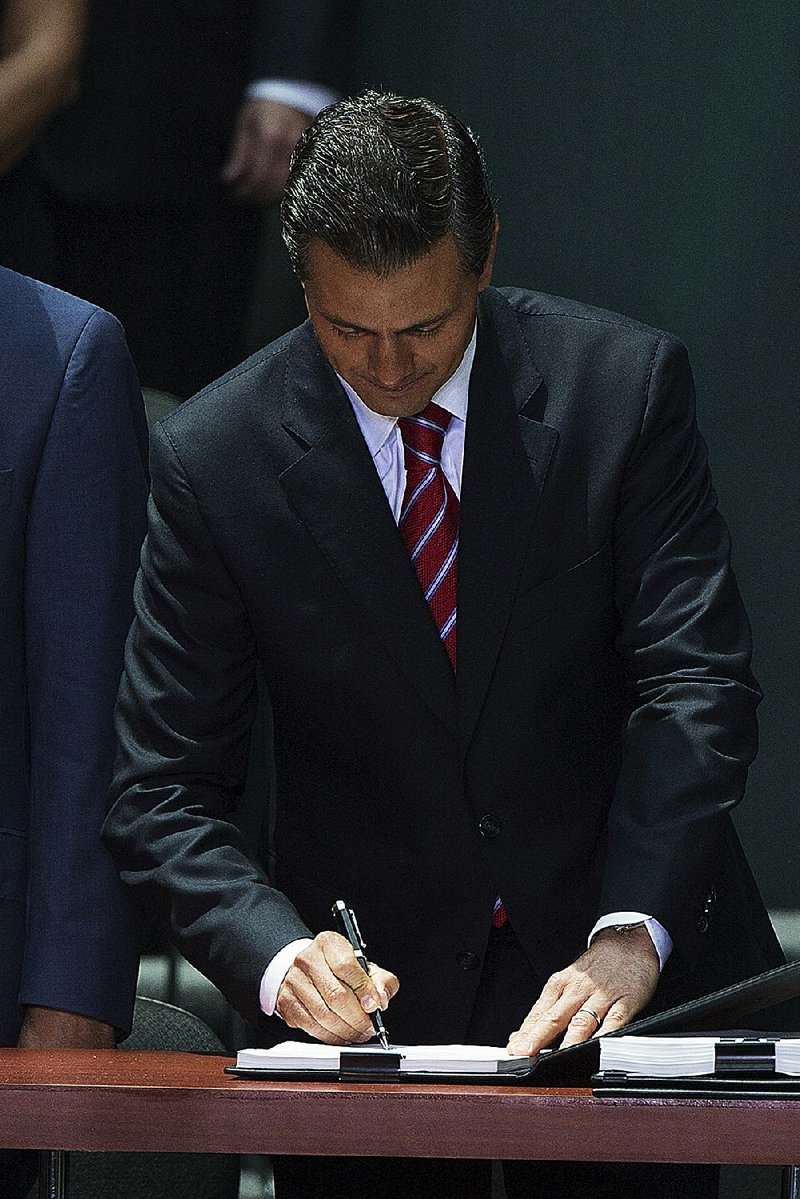President Enrique Pena Nieto formally opened Mexico's state-controlled energy industry to private investment on Monday, saying the nation will accelerate steps for the first round of private contracts.
Pena Nieto signed legislation that completes steps to end the monopoly on energy production held by state-owned Petroleos Mexicanos since 1938. The law sets guidelines for private companies seeking to produce oil and electricity, and allows the government to assume pension liabilities from Pemex and the state-owned utility Comision Federal de Electricidad.
The government is moving up by one month announcing which fields Pemex will retain for production in an oil auction known as round zero. The fields will be announced Wednesday instead of Sept. 17, Pena Nieto said. That will help clear the way for the first private contracts to be revealed in the first quarter of 2015, he said. Pemex in March asked to retain fields that hold Mexico's 13.44 billion barrels of proven oil reserves.
"The energy reform opens a great opportunity for Mexico, and we need to seize it with complete and fast implementation," Pena Nieto said in a speech at the National Palace in Mexico City. "I've told different areas of the government to accelerate all of the measures necessary to put this reform into action for the good of Mexico."
The legislation, which gained final approval from the country's Congress last week, guides the implementation of last year's constitutional changes opening the energy industry to private investment. It's designed to reverse nine years of declining oil output and to increase economic growth that missed analysts' forecasts in seven of the past eight quarters.
"These laws are important because they very clearly define the rules of the game for competition in the industry," said Alejandro Padilla, a strategist at Grupo Financiero Banorte SAB, the country's biggest, publicly traded bank. "The energy reform can generate much faster growth for Mexico."
Pemex cut its 2014 production forecast to the lowest level in at least 24 years, trimming estimates to 2.44 million barrels per day from 2.5 million, Gustavo Hernandez, Pemex's head of exploration and production, said July 25.
Pena Nieto has called the oil overhaul the cornerstone of his administration, which has also passed legislation to increase competition in telecommunications and lending. Private investment in the energy industry is forecast to add at least 1 percentage point to Mexico's gross domestic product by 2018, according to the government.
Opening Mexico's energy industry to private investment is "perhaps the most important structural reform of the last 30 years" and on par with the North American Free Trade Agreement, or NAFTA, in 1994, Alberto Ramos, chief Latin America economist at Goldman Sachs, said in a research note Thursday.
The entrance of foreign producers such as Exxon Mobil Corp. and Chevron Corp. will draw $50 billion of annual private investment by 2020, Gabriel Casillas, chief economist at Grupo Financiero Banorte SAB, said in a July 16 research note.
Business on 08/12/2014

